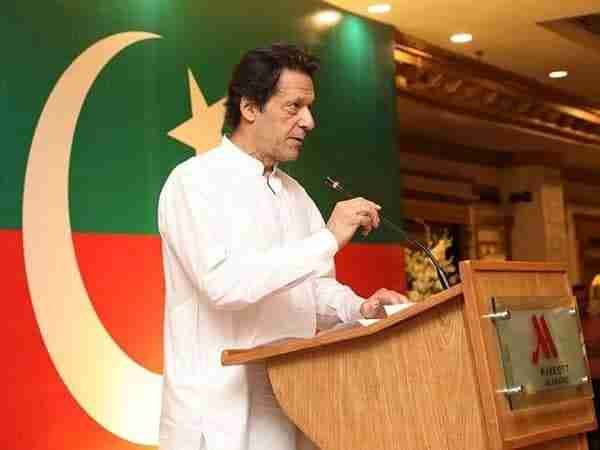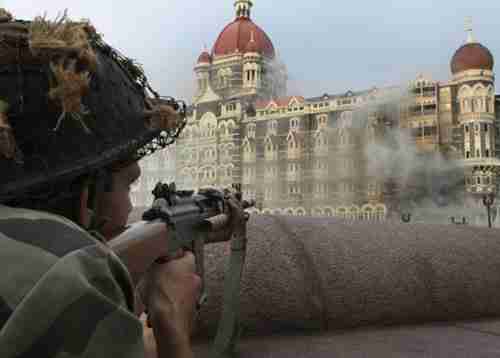Pakistan and the price of sponsoring terrorism
It wasn’t just India that has its finger pointed at Pakistan as the epicentre of terrorism at least in this region, but much of the international community led by the US has had enough of Pak’s devious games.
Despite being in the same room, twice over the past month, the foreign minister of India has refused to shake hands or exchange courtesies with her counterpart from Pakistan. Most recently in Dushanbe during the SCO meet and earlier during a meeting of SAARC ministers on the sidelines of the UNGA in New York. While the romantics in India were hoping that Imran Khan’s rise as Pakistan’s prime minister could open the door once again for Indo-Pak talks, the realists knew better. It was an option that Pakistan was eager for India to exercise also, though not for romantic reasons, but for hard-nosed geopolitical ones.
Engagement would not only ease Pakistan’s sense of isolation but help it convey to the world that even India was willing to overlook its charges that Pakistan wasn’t doing enough to confront the menace of terror on its soil. India first said yes and then a ‘no’, realizing the faux-pas it had created. However, it wasn’t just India that has its finger pointed at Pakistan as the epicentre of terrorism at least in this region, but much of the international community led by the US has had enough of Pakistan’s devious games. Pakistan was thus put on the ‘grey list’ by a UN-approved body, the Financial Action Task Force (FATF)- that monitors funding of terror groups – and its members have now come calling to check if Pakistan can move out of its greylist or should it be put on the ‘blacklist’, for being a state sponsor of terrorism.
A team of the FATF for the Asia Pacific made a weeklong visit to Pakistan recently to check to what extent had the country complied with the need to impose legal and institutional frameworks to curb terror funding and money laundering among other things. Initial reports said that they weren’t impressed. But being adept at the use of smoke and mirrors, Pakistan’s establishment cosmetic took steps like the shifting of the Lashkar-e-Taiba’s (LeT) headquarters from its sprawling complex in Muridke (which is temporarily placed under the Punjab government’s control) to a dusty base in Samsatta. Many more smoke screens will follow, in its quest to hide evidence and fudge the facts. And funds for the buildup of the new centres to house terror groups – to give Pakistani officials room for deniability – will come from cash donations made across Pakistan by the masses who have long believed that the LeT and their fellow travellers are Pakistan’s best hope to annex Kashmir through their so-called Jihad.
For the Imran Khan government, that desperately needs a financial bailout from the IMF, Pakistan’s blacklisting by the FATF would make it very difficult for any financial assistance to come formally to Pakistan’s help, as the country stares at its vastly depleted foreign exchange reserves. Pakistan now needs at least $10 billion dollars to prevent it from sinking. (It’s close to what India will pay for 36 fully armed Rafale fighter jets!) But Imran Khan has done the smart thing to make public his country’s financial plight at the start of his tenure so that the finger of blame would point to his predecessors viz. the Nawaz Sharif government. Ironically though, having put the blame during his political speeches and statements for all of Pakistan’s troubles on the West, Imran now has to seek a bailout from the West! More so, as the Chinese are unwilling to bail the Pakistanis out this time, having given Pakistan $5 billion last year and recently an emergency handout of $1 billion loans. The rest is linked to the ‘cash for kind’ China Pakistan Economic Corridor projects. The CPEC is linked to China’s much-acclaimed gift to the world, the Belt and Road Initiative, which is facing hurdles everywhere.
Assuming that Pakistan gets the IMF bailout – as it has on twelve occasions in the past – and if it then asks to resume talks with India, as it will sooner or later, Indian diplomats might like to respond to their Pakistani counterparts to say that India could, but only on New Delhi’s terms. And to rub their point home, they could remind the Pakistanis that a nation that is ‘broke’ cannot set the agenda. It will help to draw a parallel from a footnote in our post-1947 history when an arrogant Zulfikar Bhutto had told the humble Swaran Singh, India’s foreign minister after the 1962 Chinese invasion, that India was a defeated nation and it was in no position to state a claim over Kashmir. Now perhaps, it is our turn to remind the Pakistanis of the mess they are in, and that they need to sort their home out before they can hope to save the Kashmiris.


